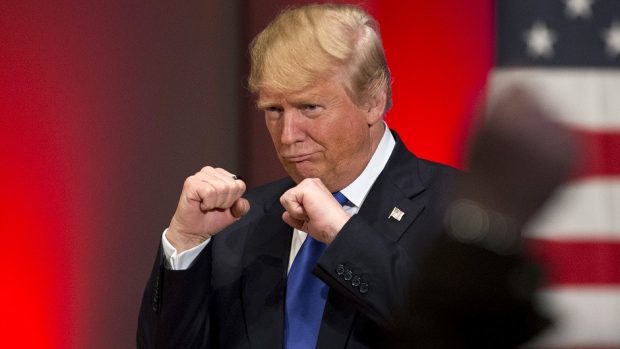A former Scottish secretary has predicted Donald Trump as president could turn out to be very different to the “crazy” figure on the campaign trail.
Veteran Tory Sir Malcolm Rifkind, who stood down as an MP at the general election last year, said the qualities which made the Republican front-runner a successful businessman meant he could not be “that much of a fool”.
He also suggested if former New York mayor Michael Bloomberg decided to run as an independent candidate, it could be “quite good news” for Mr Trump, in the event he wins the Republican race and Hillary Clinton the Democrat ticket.
Sir Malcolm said: “If Bloomberg does run, he won’t win but he will get a lot of votes.
“And if he ran against Hillary Clinton as well, let us say, it would be Clinton’s votes that he would mainly acquire.
“So that could be the curious unexpected phenomenon that produces a Corbynist result in the US.
“He (Mr Trump) has been an incredibly successful businessman over a long period of time so he can’t be that much of a fool.
“He could turn out to be quite different to what we are currently seeing.
“Once he’s actually got power, the qualities that made him an impressive businessman and a national figure even before he ever became political or running for president might take over.
“I suppose this is what I would like to think might happen – but so far the evidence is pointing in the opposite direction.
“Is all the craziness, all the stupid remarks, all the offensive remarks – is it just a facade which he knows makes him stand out from all the others?”
Sir Malcolm, who was speaking at a US election discussion in London sponsored by Ladbrokes, also joked that Mr Trump – who did not participate in Thursday night’s Fox News TV debate – made Boris Johnson look “calm, traditional and tranquil”.
He quipped: “Can you imagine a Trump-Boris summit?”
Labour peer Lord Stewart Wood, who was also on the panel at the event, spoke about Americans’ attitude to the prospect of Britain leaving the EU.
He said: “I think they think we are mad, they love Britain and want Britain to be part of the EU.”
Britain’s inclusion and influence at the table, he added, was seen as important from a security – rather than a free market – point of view.
